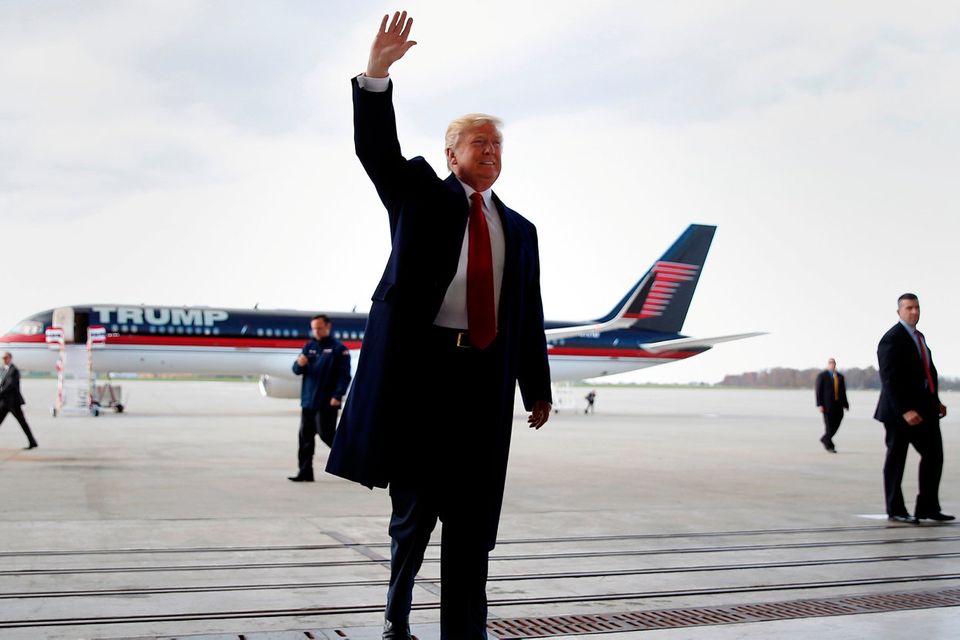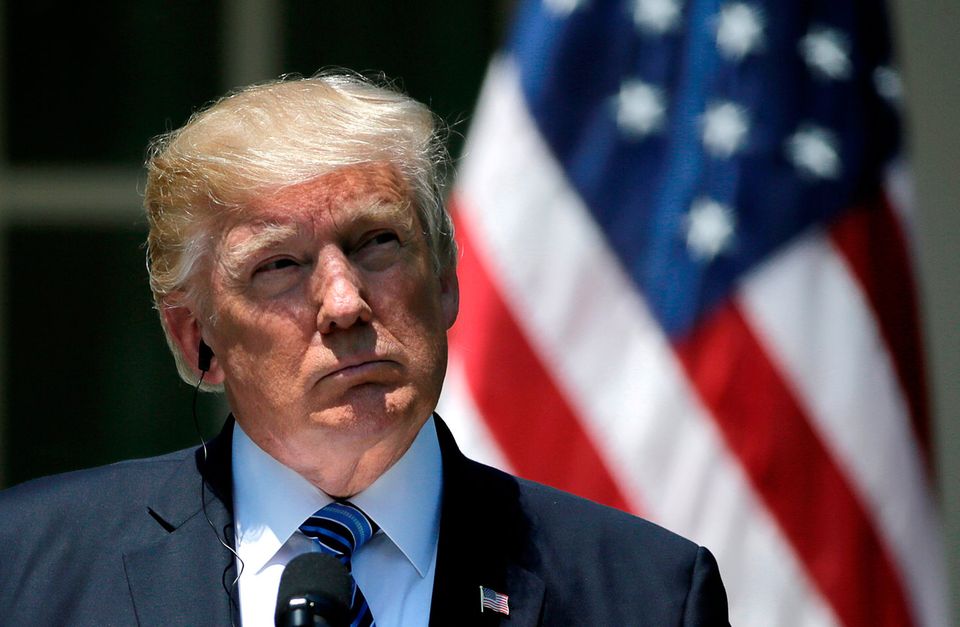Trump administration weighs into Apple's €13bn Irish tax row with the EU - sources
U.S. President Donald Trump attends an event in Wilmington, Ohio, U.S. REUTERS/Carlo Allegri/File Photo
THE US government has sought to intervene in Apple's appeal against an EU order that the technology giant must pay up to €13bn in Irish back taxes, a source familiar with the matter has said.
The Government, along with Apple, has appealed last August's record-breaking EU tax ruling to the Luxembourg-based General Court, Europe's second-highest.
European Competition Commissioner Margrethe Vestager made the record tax demand after finding that Ireland had provided illegal state aid to the US company through a 'sweetheart' tax deal.
The Vestager ruling was criticised by the Obama administration, which said the EU was helping itself to cash that should have ended up in the United States.
The Trump administration, which has tentatively proposed a tax break on $2.6 trillion (€2.3 trillion) in corporate profits being held offshore as part of its tax reform, has not said anything in public so far about the case.
However, it is now understood to be backing Apple's case by seeking a role in the appeal.
US President Donald Trump
"I can confirm that the United States filed an application with the European Union General Court to intervene in the case involving the retroactive application of state aid rules to Apple," said the source, who declined to be named because of the sensitivity of the matter.
The court is expected to hear the case late next year, another source with knowledge of the matter said.
Apple has claimed that it was a convenient target for the European Union and that the EU competition enforcer used an "absurd theory" in order to come up with a punitive figure.
Meanwhile, the European Parliament yesterday passed a directive seeking to require multinationals to report tax and financial data separately in all countries where they operate, a measure that is aimed at tackling tax-avoidance and profit-shifting to low-tax countries.
The rules are part of a wider overhaul of tax regulation spurred by the so-called 'Panama Papers' and other revelations of widespread tax-avoidance by companies and wealthy individuals.
However, they need to be approved by the European Union's member states. (Reuters)
Join the Irish Independent WhatsApp channel
Stay up to date with all the latest news
















